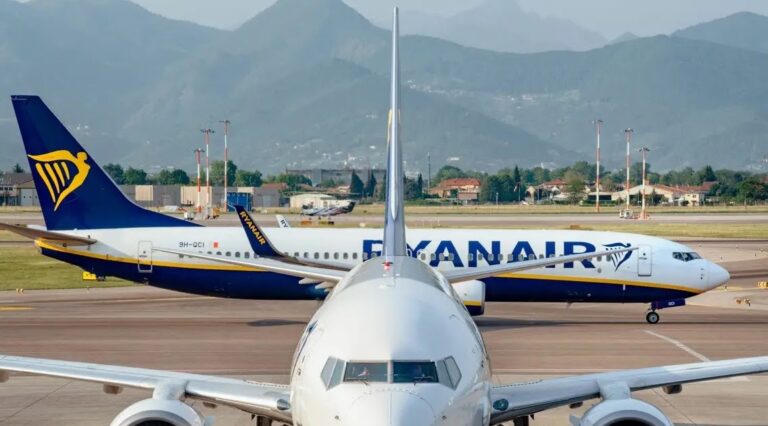Ryanair has said it will consider opening a base at Sarajevo Airport with up to two aircraft if the government of Bosnia and Herzegovina repeals a 1.5 euro departure tax per passenger which is set to make a comeback on April 1. Speaking in Sarajevo, the carrier’s Chief Commercial Officer, Jason McGuinness, said, “What is happening right now? You have countries like Sweden, Hungary, and Albania, all abolishing aviation taxes because they want to compete and understand how to attract real passengers. Access costs must be reduced. That’s why I’m a bit concerned about the reintroduction of taxes here in Bosnia and Herzegovina. The development that was discussed for Sarajevo will not be possible if that decision stands. It is essential for establishing a base. That means an aircraft starts and ends its day here. We would employ local pilots, engineers, and crew members. If we had two aircraft in Sarajevo, which is the plan, the number of jobs at the airport would immediately increase by 100. This would also lead to an increased number of aircraft and, very quickly, more destinations and passengers. Abolish the taxes and enable us to have serious discussions about establishing a base”.
The Ministry for Communication and Traffic of Bosnia and Herzegovina has adopted the reintroduction of the passenger departure tax at the country’s commercial airports, which will come into effect on April 1. Imposed by the Bosnia and Herzegovina Directorate of Civil Aviation (BHDCA), the tax, which has only ever been fully enforced for carriers operating out of Sarajevo Airport but is supposed to be applied at all of the country’s commercial airports, has been seen as a deterrent for airlines, especially low cost carriers. The tax was suspended for a year in order to boost the country’s connectivity. However, the BHDCA has said the policy has resulted in a “dramatic drop in income” and poses a threat to the Directorate’s operations. The tax amounts to 1.5 euros per each departing passenger, which airlines must pay to the airport, with the funds then directed to the BHDCA. However, the Ministry of Communication and Traffic announced that airports will now receive 30% of the proceeds, up from the previous 3%. “This will allow airports to negotiate differently with airlines, helping us to avoid low cost carriers leaving in protest”, the Minister for Communication and Traffic, Edin Forto, previously said.






